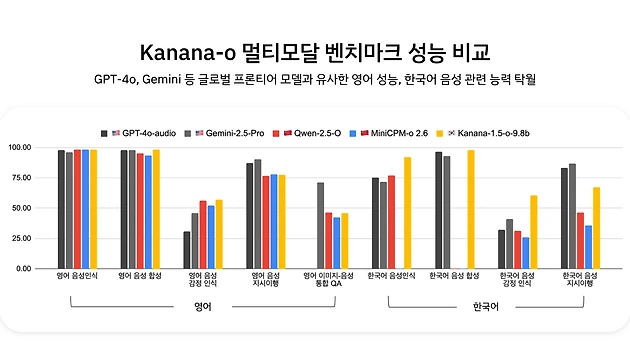Kakao Maker’s “Jegaburch” Project Exceeds Cumulative Transaction of 20 billion KRW
- Expanded connections and promote coexistence and cooperation between agricultural, livestock, and fishery product producers and consumers
- Reached 20 billion KRW, five months after recording 10 billion KRW in November 2022
- Fulfilled the purpose of the project by introducing produce cultivated by young farmers and holding special events on Farmers and Fisherman’s Day… Products that utilized Kakao’s Choonsik intellectual property (IP) sold out in two days, demonstrating consumer’s continued attraction towards the project
- The project will be expanded to support floriculturists and continuously introduce “ugly” produce
[April 24, 2023] “The Jegaburch Project helped me sell tasty tomatoes, which I worked on day and night, to consumers at a reasonable price. I will never forget the 15 days I spent reading reviews that supported my work and business, as well as the unexpected number of grateful orders I received”.
– Min Jeongwook, young farmer selling ripe tomatoes from Chungcheongnam-do
Kakao’s coexistence project that supports the sales of Korea’s carefully grown agricultural, livestock, and fishery products is continuously recording excellent results.
Kakao (CEO, Hong Euntaek) announced on April 24 that its Impact Commerce Kakao Makers’ “Jegaburch Project”, which supports South Korea’s agricultural, livestock, and fishery industry so that its products are sold and valued at a reasonable price, has exceeded a cumulative transaction of 20 billion KRW.
The Jegaburch Project, which was first introduced in August 2021, is Kakao Maker’s representative coexistence project that connects Korea’s agricultural, livestock, and fishery products and processed foods, which can be oversupplied, with more users for sales purposes. The project opens the market for agricultural, livestock, and fishery products that are easily discarded due to supply and demand imbalances, which helps greatly reduce inventory and stabilizes price. The Jegaburch Project achieved a cumulative transaction of 10 billion KRW at the end of November 2022.
The project has so far helped sell a total of 3,930 tons worth of agricultural, livestock, and fishery products to around one million consumers. The project has introduced approximately 220 agricultural, livestock, and fishery products and 40 processed foods, with the Jeju pre-washed winter daikon radish, Gangwon Dongsong Nonghyup Grasshopper Rice, Jeollanam-do Youngam red clay pre-washed honey sweet potatoes being some of the most popular products sold. The “Geumsan Red Ginseng Extract, Prepared for 72 Hours”, a private brand (PB) product produced in partnership with the Geumsan Ginseng Cooperative and the Jegaburch Project to support ginseng farmers in Geumsan, Chungcheongnam-do, sold out three times, selling a total of 12,400 sets, and is currently on its fourth sale.
The Jegaburch Project is steadily developing activities to spread the purpose of the project, which is for producers and consumers to connect, coexist and cooperate. The project held a special exhibition for Korea’s young farmers in January by placing a spotlight on products and stories of young farmers who left the city to take on the challenge of farming and as a result are helping solve the aging population problem in the farming communities. Gangwon-do’s Hongcheon apples, Jeollabuk-do’s Shindongjin rice and Chungcheongnam-do’s ripe tomatoes are just some of the products showcased in the exhibition.
In celebration of last year’s Farmer’s Day, which is November 11 of each year, the project supported farmers by holding a special sales exhibition on 19 products from five provinces. On April 1, or Fisherman’s Day, the project also held an event to promote the importance of the fisheries industry and the fishing community. Twenty-seven items, including octopus, sea squirts, saltwater eels and silver hairtails from Gyeongsang-do, Jeolla-do, Jeju-do, Chungcheong-do and other parts of Korea, were selected for the event. Fishery products, which were sent directly from the source to maintain freshness, attracted many consumers, and sold quickly. Among the products sold, the “Cleaned and Trimmed Jeju Mackerel” sold out with a high satisfaction rate of 91%.
Unique products that combined Korea’s agricultural products with Kakao’s IP for added familiarity and popularity was also popular. The “Jeollanam-do Youngam Red Clay Pre-Washed Honey Sweet Potatoes” box, which was decorated with Kakao Friends’ popular character Choonsik and contained three bags for sharing, was introduced on April 10. The entire stock of 10,000 boxes was sold out in less than two days. The success of this collaboration has provided a steppingstone for future pairings of agricultural products and Kakao IPs.
Kakao Makers plan to expand the Jegaburch Project from the agricultural, livestock, and fishery industry to flower farmers to help stabilize production of flower farms that are having difficulties due to lower demands and contribute to activating purchases. The project will also continuously showcase “ugly” agriculture and fishery products, which taste good and have high nutritional values despite their uneven appearance and minor scratches, to help producers and raise awareness of their value to consumers. A farm volunteer program where people can go to farms to help in the fall is also in the works.
Kim Jungmin, leader of Kakao’s Jegaburch Project team said that Kakao is “making more attempts to solve real difficulties our agricultural, livestock, and fishery industry face due to overproduction, decrease in sales channels and stagnation in consumption, and will expand our support and cooperation by introducing consumers to a wide variety of produce, meats, fish and processed foods.”
(Reference) Introduction to Kakao Maker’s Jegaburch Project
https://makers.kakao.com/promotion/263
- Press Release 발행일 2023.03.10 Kakao Makers Exceeds Cumulative Transaction of 700 Billion KRW
 #kakaomakers
#kakaomakers - Press Release 발행일 2025.12.12 Kakao Unveils Performance of Two Advanced Multimodal Language Models
 #kakao#Multimodal Language Model
#kakao#Multimodal Language Model

